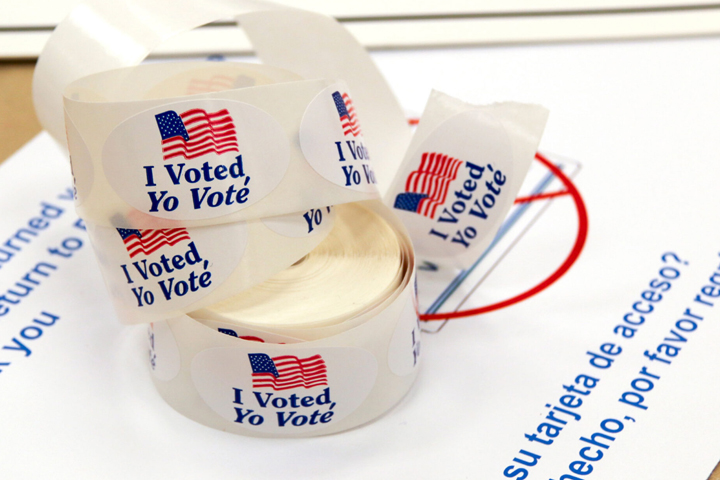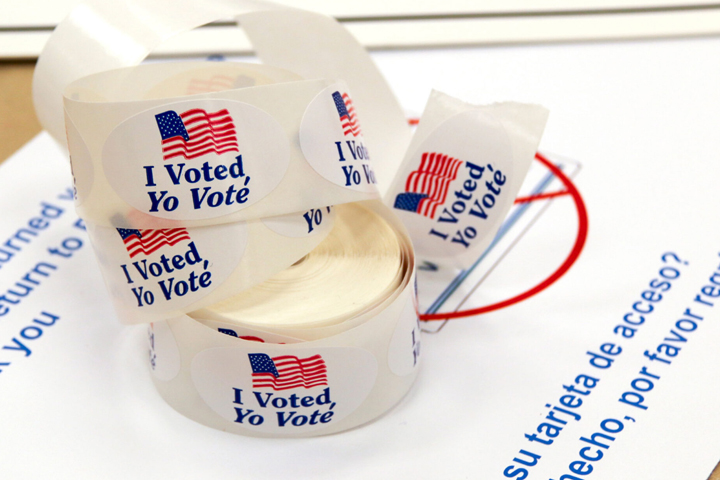
Investors have long speculated that companies with deficient corporate governance practices might be inclined towards mismanagement and diminished returns. To delve deeper into this hypothesis, we've turned our attention to a crucial source of data: our proxy votes.
We specifically illustrate the correlation between governance and returns by examining AllianceBernstein’s (AB’s) track record in proxy voting over recent years. Proxy voting stands out as a potent tool for investors to express their views on a firm’s governance quality, provided it's grounded in meticulous analysis and accountability, rather than mere acquiescence.
Utilizing proxy voting alongside direct engagement with companies can play a pivotal role in enhancing their governance, ideally leading to superior long-term outcomes. Numerous studies, including our own research, have underscored this connection.
The Governance-Return Linkage
In a study conducted by professors at Harvard Law School, an entrenchment index, or “E-index,” was formulated based on six key governance provisions. Their research revealed a correlation between lower E-index ratings and declines in firm value and returns across US equities from 1990 to 2003.
More recently, S&P Global's analysis spanning from 2000 to 2017 demonstrated that companies in the bottom quartile of S&P Dow Jones Indices’ Governance Scores underperformed those in the top quintile by approximately 2% annually.
Inspired by these findings and our own observations, we conducted an internal study to explore whether a similar association exists between our proxy-voting record and returns. Our analysis revealed that, on average, companies for which we opposed management on various proposals tended to underperform those where our alignment was stronger.
Advocating for Governance—Company by Company
Assessing governance isn’t a uniform process. We employ a proprietary proxy-voting policy to evaluate each company's alignment with our basic expectations. This is followed by a collaborative review incorporating analyst expertise and engagement data. This dual approach enables us to incorporate company-specific fundamental insights, facilitating more constructive voting strategies.
When we discern that a company's governance practices fail to serve our clients' best interests, we may vote against management to express our dissent. For instance, if internal accounting issues arise, we may oppose the chair of the audit committee. Similarly, if executive compensation lacks alignment with performance, we cast our vote against it. Some governance concerns may necessitate a stance against specific board members, known as an “accountability vote.”
Incorporating Thousands of AB Proxy Votes
In the context of this framework, our study examined around 34,000 shareholder meetings, encompassing votes on over 266,000 individual proposals across global firms from 2018 to 2022. Subsequently, we correlated each proxy vote with the company’s total stock return in the following calendar year.
To gauge our level of alignment with management, we categorized companies into equally weighted groups based on the number of votes against management (VAMs) we cast. For instance, zero VAMs signal strong alignment, reflecting our confidence in the firm's governance and oversight. A single VAM denotes a dissenting vote on any proposed matters, ranging from capitalization and audits to compensation and director elections. Two VAMs signify disapproval on two such measures, and so forth.
During the period, zero VAMs were recorded in 45% of all shareholder meetings, indicating our pushback—whether on minor issues or significant proposals—was prevalent. This underscores our stringent standards and commitment to enhancing the status quo. Multiple VAMs are crucial for addressing material concerns, particularly if a company's governance issues have persisted over several years.
Our analysis revealed that companies with zero VAMs, those we fully supported, outperformed those in other VAM categories by at least 250 basis points annually. This trend was generally consistent across similarly sized peers and most sectors and regions over the five-year period, with zero-VAM companies boasting an average annualized return of 11.5%, nearly double that of companies in the three or more VAM category.
Proxy voting should transcend mere compliance, serving as a vital tool in active management. It empowers investors to steer companies away from pitfalls that could hinder long-term performance. In governance matters particularly, well-considered proxy votes have shown to positively influence critical business decisions, spanning leadership, disclosures, compensation, and capitalization.
We specifically illustrate the correlation between governance and returns by examining AllianceBernstein’s (AB’s) track record in proxy voting over recent years. Proxy voting stands out as a potent tool for investors to express their views on a firm’s governance quality, provided it's grounded in meticulous analysis and accountability, rather than mere acquiescence.
Utilizing proxy voting alongside direct engagement with companies can play a pivotal role in enhancing their governance, ideally leading to superior long-term outcomes. Numerous studies, including our own research, have underscored this connection.
The Governance-Return Linkage
In a study conducted by professors at Harvard Law School, an entrenchment index, or “E-index,” was formulated based on six key governance provisions. Their research revealed a correlation between lower E-index ratings and declines in firm value and returns across US equities from 1990 to 2003.
More recently, S&P Global's analysis spanning from 2000 to 2017 demonstrated that companies in the bottom quartile of S&P Dow Jones Indices’ Governance Scores underperformed those in the top quintile by approximately 2% annually.
Inspired by these findings and our own observations, we conducted an internal study to explore whether a similar association exists between our proxy-voting record and returns. Our analysis revealed that, on average, companies for which we opposed management on various proposals tended to underperform those where our alignment was stronger.
Advocating for Governance—Company by Company
Assessing governance isn’t a uniform process. We employ a proprietary proxy-voting policy to evaluate each company's alignment with our basic expectations. This is followed by a collaborative review incorporating analyst expertise and engagement data. This dual approach enables us to incorporate company-specific fundamental insights, facilitating more constructive voting strategies.
When we discern that a company's governance practices fail to serve our clients' best interests, we may vote against management to express our dissent. For instance, if internal accounting issues arise, we may oppose the chair of the audit committee. Similarly, if executive compensation lacks alignment with performance, we cast our vote against it. Some governance concerns may necessitate a stance against specific board members, known as an “accountability vote.”
Incorporating Thousands of AB Proxy Votes
In the context of this framework, our study examined around 34,000 shareholder meetings, encompassing votes on over 266,000 individual proposals across global firms from 2018 to 2022. Subsequently, we correlated each proxy vote with the company’s total stock return in the following calendar year.
To gauge our level of alignment with management, we categorized companies into equally weighted groups based on the number of votes against management (VAMs) we cast. For instance, zero VAMs signal strong alignment, reflecting our confidence in the firm's governance and oversight. A single VAM denotes a dissenting vote on any proposed matters, ranging from capitalization and audits to compensation and director elections. Two VAMs signify disapproval on two such measures, and so forth.
During the period, zero VAMs were recorded in 45% of all shareholder meetings, indicating our pushback—whether on minor issues or significant proposals—was prevalent. This underscores our stringent standards and commitment to enhancing the status quo. Multiple VAMs are crucial for addressing material concerns, particularly if a company's governance issues have persisted over several years.
Our analysis revealed that companies with zero VAMs, those we fully supported, outperformed those in other VAM categories by at least 250 basis points annually. This trend was generally consistent across similarly sized peers and most sectors and regions over the five-year period, with zero-VAM companies boasting an average annualized return of 11.5%, nearly double that of companies in the three or more VAM category.
Proxy voting should transcend mere compliance, serving as a vital tool in active management. It empowers investors to steer companies away from pitfalls that could hinder long-term performance. In governance matters particularly, well-considered proxy votes have shown to positively influence critical business decisions, spanning leadership, disclosures, compensation, and capitalization.


 Enhancing Corporate Governance: Insights from Proxy Voting Analysis
Enhancing Corporate Governance: Insights from Proxy Voting Analysis




 Companies
Companies